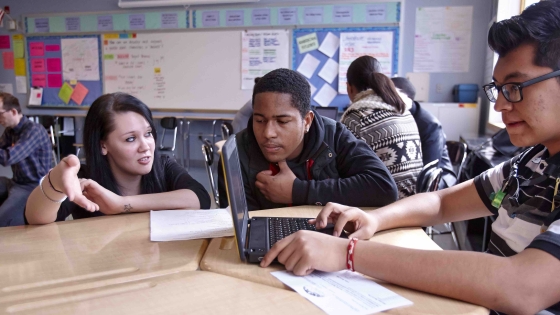About the Urban Assembly
While New York City’s high school graduation rates have increased in recent decades, large disparities in educational opportunities and outcomes remain. Black and Latinx students and those from low-income communities are substantially less likely to graduate than their White, Asian and more affluent peers. School support organizations like Urban Assembly strive to address these inequities. In the 2019–2020 school year, Urban Assembly supported 23 unscreened schools serving roughly 9,000 middle and high school students throughout Manhattan, Brooklyn, and the Bronx. Urban Assembly offers professional development and support in five core program areas: academics, leadership, social emotional learning, postsecondary readiness, and alumni success.
About the Study
The Research Alliance for New York City Schools is collaborating with MDRC on a rigorous study of the effects of the Urban Assembly school support network on students’ academic and social emotional outcomes. As part of this study, the Research Alliance is conducting a comprehensive analysis of the landscape of school support organizations operating in the City from 2012 to the present. This work is documenting the types of support offered by non-Urban Assembly school support organizations, making it possible to assess how programming offered to the Urban Assembly schools differed from that offered to other NYC high schools attended by comparison group students. The project will include an extensive literature review, as well as interviews with school principals and district and school support organization staff to learn about how they see their roles, and to identify factors that facilitated or presented challenges to their work. We will draw on these sources of information to develop a theory of action for how school support organizations help improve high schools and ultimately foster better opportunities and outcomes for students.
This project is funded by a grant to MDRC from the US Department of Education’s Institute of Education Sciences (award # R305A210292).

